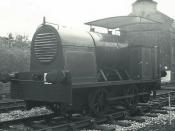I think that McEwan has written a very effective conclusion to the novel, despite what many critics have said about it being too "tidy". These critics have suggested that in particular McEwan's skeleton of nine chapters is too schematic. However, I think that this shows a good way to represent not only the nine month period over which Julie and Stephen's new child is growing, but also the time during which Stephen has developed and grown himself, accepting his childhood and the grief that almost kept him suspended in time.
The initial Childcare Handbook quote is the first vaguely positive view of childhood that we have seen in the book from the government.
"More than coal, even more than nuclear power, children are our greatest resource." (P. 205)
We immediately assume that McEwan is suggesting economics because of the way he has taught us to read the Handbook. Despite this, he has also taught us to put these excerpts into the context of family.
If we heard this quote from another source would we see it as a more caring statement? We can also relate Charles Darke back to this in that he was stuck between adulthood and childhood. McEwan is telling us that if children are deprived of childhood then they will not be a useful resource --just like Charles -- even the non-financial type of resource that he prefers to see children as.
The train journey that Stephen embarks on up to Julie's house is a significant moment in the chapter. As well as fulfilling his childhood dream of riding a train, the journey can be taken as a metaphor, propelling Stephen towards his wife and leaving behind the problems of the city. It could be noted that the city was also where Kate went missing. The train...


